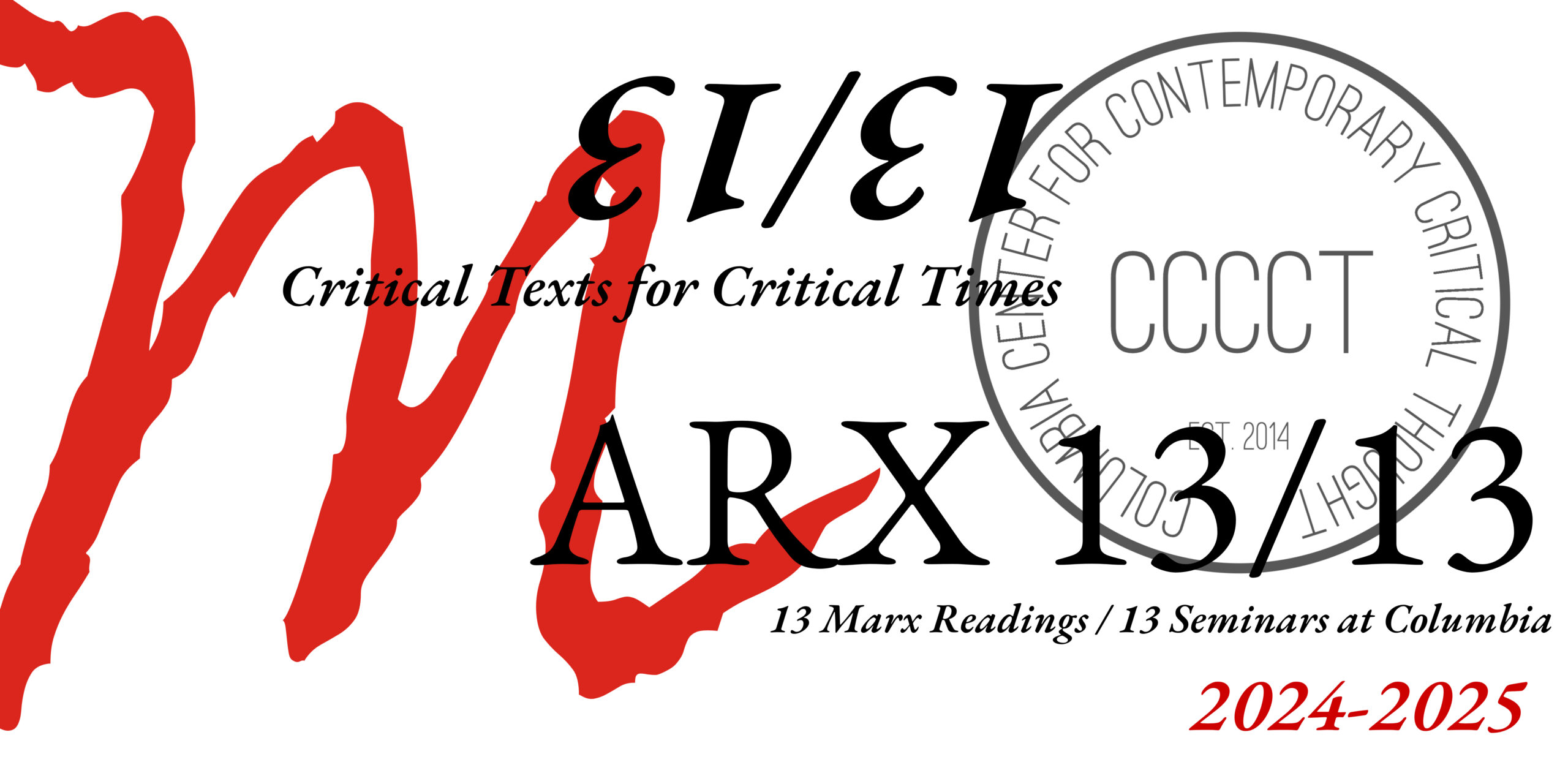Date of writing: April 1845
Context of writing: Marx is in Brussels, having fled France. He just finished drafting the Economic and Philosophical Manuscripts of 1844 (which would remain unpublished) and, with Engels, The Holy Family (1844-45), and is working on preparing for a text that will become The German Ideology (which starts with a whole section on Feuerbach and remained unpublished till 1932).
Status: Unpublished, these are just Marx’s jottings in a notebook.
Publication: Engels recovers the notes and decides to publish them as an appendix to his work on Feuerbach in 1888 titled Ludwig Feuerbach and the Outcome of Classical German Philosophy. Engels explains there:
Before sending these lines to press, I have once again ferreted out and looked over the old manuscript of 1845–46 [The German Ideology]. The section dealing with Feuerbach is incomplete. The completed portion consists of an exposition of the materialist conception of history which proves only how incomplete our knowledge of economic history was at that time. It contains no criticism of Feuerbach’s doctrine itself; for the present purposes, therefore, it was unusable. On the other hand, in an old notebook of Marx’s I have found the eleven theses on Feuerbach, printed here as an appendix. These are notes hurriedly scribbled down for later elaboration, absolutely not intended for publication, but they are invaluable as the first document in which is deposited the brilliant germ of the new world outlook.[1]
Key contributions:
- An epistemology of practice: it is impossible to know things except through active engagement, activity, practice.
- A new form of materialism: practice creates the possibility of a new materialism having the standpoint of “human society, or socialized humanity.”
- The reality of social conflict: the religious projection of the worldly onto the heaven reflects a duality/conflict in society (possibly understood as class conflict).
- Men make their history.
- Praxis: Marx stakes out praxis as the most important task of philosophy—the famous “Eleventh Thesis.”
Bernard E. Harcourt
Notes
[1] Frederick Engels, Ludwig Feuerbach and the Outcome of Classical German Philosophy, ed. C. P. Dutt (New York: International Publishers, 1978 [1888]), 8.
